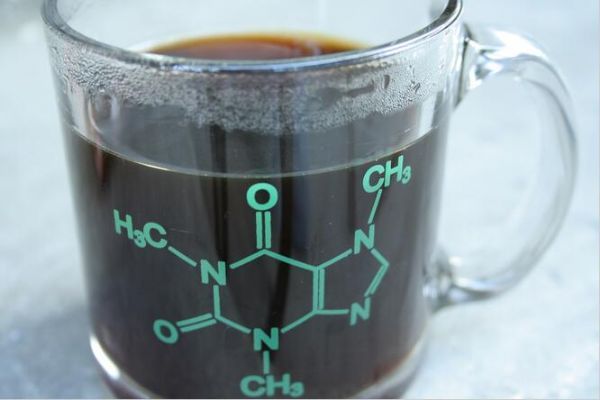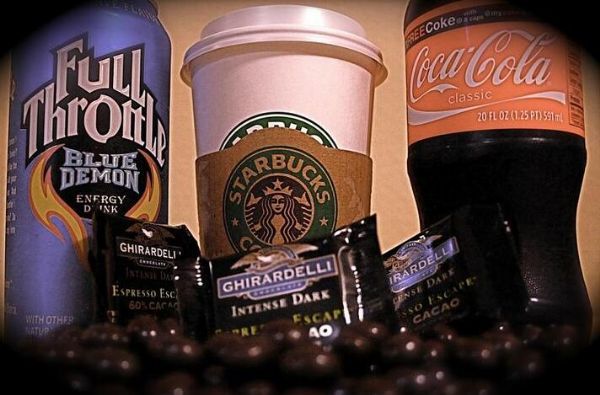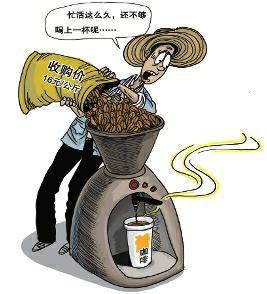Does eating caffeinated drinks really dehydrate the body?

April 23, 2017 / Biological Valley BIOON/-caffeine has long been told that caffeine is a diuretic, which for some people may translate into advice to help people at risk of dehydration or to avoid or remove caffeinated drinks during the summer heat. Meaningful as it may seem, this suggestion seems to be wrong.
Literally, diuretics are substances that increase the body's production of urine, so consuming large amounts of water or any drink seems to have a certain degree of diuresis; more importantly, excessive urination does not necessarily cause dehydration. Drinking water provides the body with the liquid it needs to absorb and produces urine. Caffeine is a weak diuretic, and the body's tolerance to this effect is often quickly acquired with regular intake of caffeine (4-5 days).
In 1928, a study of three participants showed that when participants did not take caffeine for more than two months, a dose of caffeine per kilogram body mass index (0.5mg) induced a significant micturition response. But regular caffeine intake (4-5 days) tends to make the body tolerate the diuretic effect, so before the diuretic effect is detected, we may need to consume more than 1mg caffeine (the equivalent of a cup of coffee) per kilogram of body mass index, suggesting that regular consumption of caffeinated drinks does not lead to chronic dehydration.
But the study also had significant sample size limitations, which were confirmed more than a decade ago by researchers using contemporary research methods and analysis; the study monitored 59 healthy individuals for 11 days. to determine whether caffeine intake can lead to loss of body fluids or dehydration. At the beginning of the period, each participant consumed caffeine according to the body mass index (3mg) per kilogram for six days, and then the researchers changed the participants' caffeine intake to 0, low dose (1 cup) or moderate level (2 cups).

The researchers monitored a variety of hydration measures, such as urine production and color, and almost every hydration measure the researchers used to monitor liquid balance was not affected by regular caffeine intake. In the science of hydration, the effect of any liquid on body fluids can be determined by the level at which the body retains any volume consumed; recently, researchers have established a concept called the beverage hydration index, which is used to describe the body's ability to retain liquid in different drinks compared to water.
At the same time, the hydration index of this beverage can also clarify the caffeine drinks consumed by the body, such as coffee, tea and cola, which have a similar liquid retention capacity to water; one advantage of the beverage hydration index is that it can help identify drinks that contribute to the total liquid intake of the body. By advising people not to eat their favorite drinks (because they contain caffeine), everyone may not need to remove these drinks by themselves, as this will lead to a reduction in the body's total liquid intake.
At present, researchers have found that poor hydration is directly related to poor health, and dehydration can interfere with the body's mood, brain and heart function. at the same time, it can also be used as a predictor to indicate the poor prognosis of elderly patients and the probability of hospitalization. So when caffeinated drinks such as colas and energy drinks have their own health benefits, such as high levels of sugar, which can optimize the fluid balance in the body, we may not need to worry about the caffeine in these drinks. (biological Valley Bioon.com)
Important Notice :
前街咖啡 FrontStreet Coffee has moved to new addredd:
FrontStreet Coffee Address: 315,Donghua East Road,GuangZhou
Tel:020 38364473
- Prev

Yunnan coffee production accounts for 99% of the country's coffee production. It is difficult to exchange 1 kg coffee beans for 1 cup of coffee.
A cup of coffee costing tens of yuan is common in metropolises. However, in Yunnan Province, the main coffee producing area in China, the purchase price of coffee beans is about 15 yuan per kilogram. According to the figures released by the Yunnan Coffee Association, during the 2015-2016 harvest season, the average price of a kilogram of coffee beans purchased by enterprises from curry farmers is between 13 yuan and 14 yuan, and the market trade price is maintained at around 16 yuan. Yunnan coffee
- Next

Do you feel sleepy and tired at work? Climbing stairs is more refreshing than drinking coffee
What if office workers feel sleepy when they go to work? Us researchers suggest that instead of spending money on coffee, take the stairs for 10 minutes, which is more refreshing and saves a lot of money. According to the Daily Mail of the 21st, researchers at the School of Motor function at the University of Georgia selected a group of female college students who had been deprived of sleep for a long time. The average sleep time of these students is every night.
Related
- Workers collapse! Lucky suspects that it will introduce freshly cut fruits?!
- 1-point subsidy recipients wear thousand-yuan watches?! Local response: For low-income households
- Can lightly roasted coffee beans be used to extract espresso? How finely should you grind high-quality coffee beans to make Italian latte?
- What is the difference between the world's top rose summer coffee and Yejia Shefi? What are the flavor characteristics of Yega Shefi coffee and Panama rose summer?
- The ceremony is full! Starbucks starts to cut the ribbon at a complimentary coffee station?!
- A whole Michelin meal?! Lucky launches the new "Small Butter Apple Crispy Latte"
- Three tips for adjusting espresso on rainy days! Quickly find the right water temperature, powder, and grinding ratio for espresso!
- How much hot water does it take to brew hanging ear coffee? How does it taste best? Can hot water from the water dispenser be used to make ear drip coffee?
- What grade does Jamaica Blue Mountain No. 1 coffee belong to and how to drink it better? What is the highest grade of Blue Mountain coffee for coffee aristocrats?
- What are the flavor characteristics of the world-famous coffee Blue Mountain No. 1 Golden Mantelin? What are the characteristics of deep-roasted bitter coffee?

